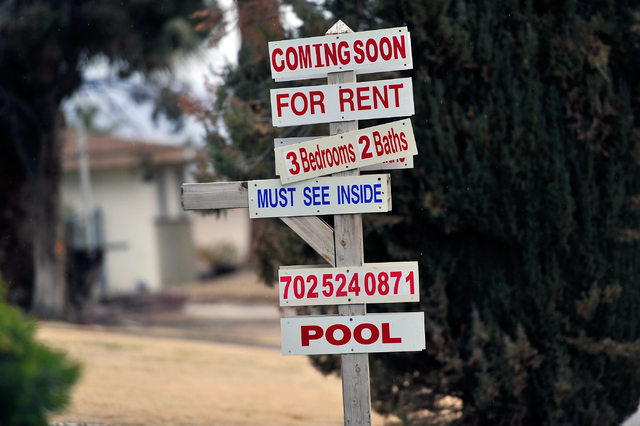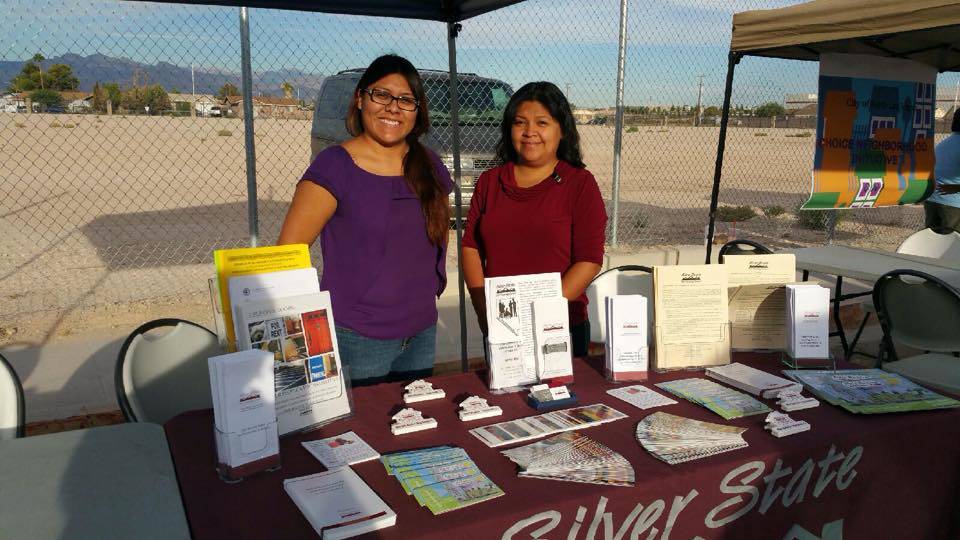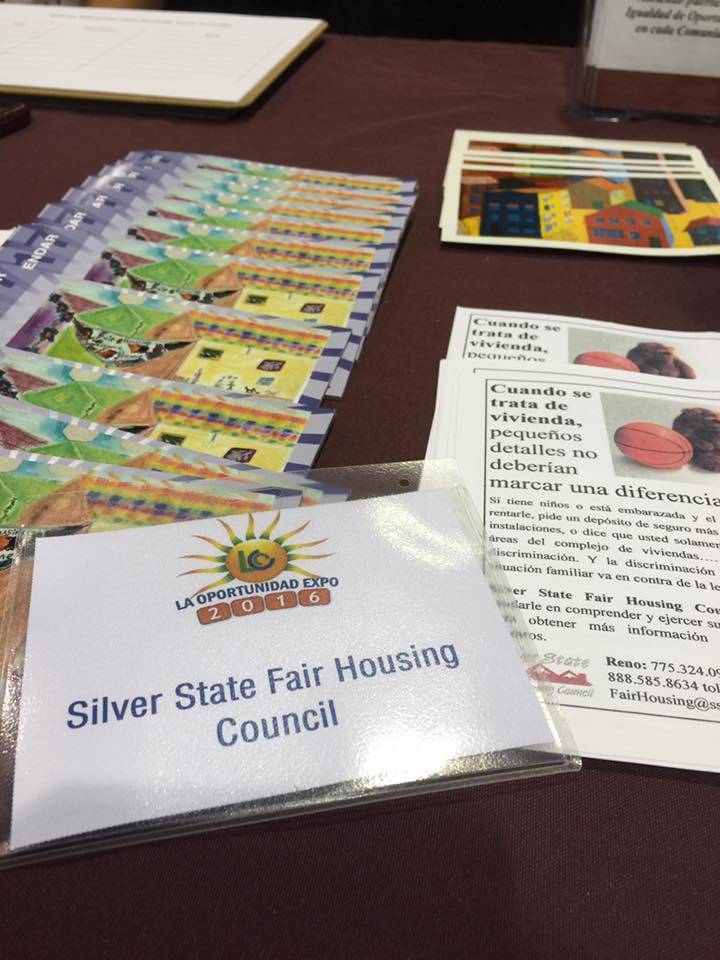Council volunteers test for housing discrimination in Las Vegas




On a Wednesday afternoon in a small conference room in a tan-colored business center on South Jones Boulevard, volunteers nibbled on cookies and talked about discrimination and how it relates to fair housing.
In these offices, the Southern Nevada arm of the Silver State Fair Housing Council, six people learned how to become housing-discrimination testers.
“The bottom line is that most housing discrimination doesn’t happen when somebody slams the door in somebody’s face,” said Katherine Zook, executive director for the council. “Sometimes something like housing-discrimination testing can start to identify patterns and practices that lead to discriminatory types of behavior.”
Testers provide an important service, Zook said. When the council receives a complaint from someone who believes they’ve been discriminated against, the council can send anonymous testers out to see if there is legitimacy to the complaint.
Here’s how it works: After the council receives a complaint, two testers, similar in all ways except for the variable being tested (race, gender, ancestry or disability, for example) go to a rental or sales office. They present themselves in every way as home seekers, and most use their real name.
Testers document everything they experience in detail, including how they were greeted and by whom, which units they were shown, which units they were told were available and the price per unit.
“In a perfect world, both of those testers are going to come back and … everything would be the same across the board,” Zook said. That’s not always the case.
Zook told the group a story of a tester in Reno. The council sent a young Latina tester out to look for an apartment. Her profile said that she was married and her husband was a pilot, and they were relocating to the area. The tester came back and reported that the rental agent had been helpful and had given her an apartment guide and circled a complex down the street that might have a vacancy.
“And an hour later our Caucasian female tester came back,” Zook said. “She’d seen two empty units at the property.”
The group groaned.
“I’m not willing to do this; I’m eager to do this,” said one volunteer , K. (View was asked to withhold names because anonymity is central to the discrimination tester’s job). “I hate how this country is now. … I’m distraught. I want to do something to help it get better.”
Another volunteer, S., wanted to get involved because she said her mother experienced housing discrimination as a Native American woman in California in the 1970s.
“My mom found a place she liked and they wouldn’t let her move in. They said it wasn’t available,” S. said. “Well, her white friend went and they showed her the place and offered it to her. She said, ‘This isn’t for me, this is for my friend.’”
S.’s mother moved in the next day, and that became the house S. grew up in. But that wasn’t the end of her mother’s housing woes. She would have to repeat the process two more times when she later moved, S. said.
Another volunteer, T., recently moved to Las Vegas from Southern California with her husband. T. recently retired from a job in the multifamily-housing industry after 17 years, “so I’m usually on the other end,” she said.
“I have a special place in my heart for folks getting housing when they didn’t think that they could,” T. continued. “I thought it would be nice to spend some free time giving back.”
Fair Housing Act
Most of the discrimination that the group tests for is covered under federal law by the Fair Housing Act. The act protects people from discrimination “when they are renting, buying or securing financing for any housing” on the basis of race, color, national origin, religion, sex, disability and the presence of children, according to the Department of Housing and Urban Development website.
But the housing market is changing rapidly in the Las Vegas Valley, Zook reminded the group. Apartment rental vacancies are sliding, as well as available town homes, condos and houses. Zook said she believes that there is not enough housing to support the workforce moving into the valley.
“It’s really scary,” Zook said. “So you can see where it would be really believable if somebody said, ‘I don’t have anything available, gosh too bad.’ And there’s always a smile.”
Testers have to go through an application process and have a background check. Testers can’t have convictions for perjury, fraud or similar crimes.
The council’s work has led to lawsuits in several instances, sometimes ending in the victim’s favor.
In June, HUD reached a settlement with the owner and manager of four apartment complexes in Reno after the council conducted tests and accused the owners of discriminating against prospective tenants who required service animals.
Under the agreement, property-management company ERGS paid $20,500 to the council, and both ERGS and Silver Lake Apartments were ordered to adopt policies consistent with the Fair Housing Act.
Disability is the most common reason why people file fair-housing complaints, according to HUD and Zook.
In 2016, HUD considered over 4,900 disability-related complaints — more than 58 percent of all housing complaints filed that year.
Fair Housing Resource for All
The housing council’s Southern Nevada office opened in 2012 after years of receiving requests for services at its Reno office, Zook said. Discrimination testing is not the organization’s sole purpose.
The council also does community outreach, including working with financial-guidance centers to provide first-time homebuyer trainin, as well as accredited training for real-estate professionals, property managers, community-association managers and homeowners associations.
The council does this so “they all understand how the Fair Housing Act works,” Zook said, “… because we want them to do the right thing.”
Contact Madelyn Reese at mreese@viewnews.com or 702-383-0497. Follow @MadelynGReese on Twitter.
Silver State Fair Housing Council
Address: 2920 S. Jones Blvd, Suite 230
Phone: 702-749-3288 or 888-585-8634
Email: fairhousing@ssfhc.org
Social media: facebook.com/silverstatefairhousingcouncil
To volunteer
The next discrimination-tester training is set for 1 p.m. Sept. 20 at the council’s Las Vegas office. Prospective volunteers are asked to RSVP by phone or email by noon Sept. 19.












